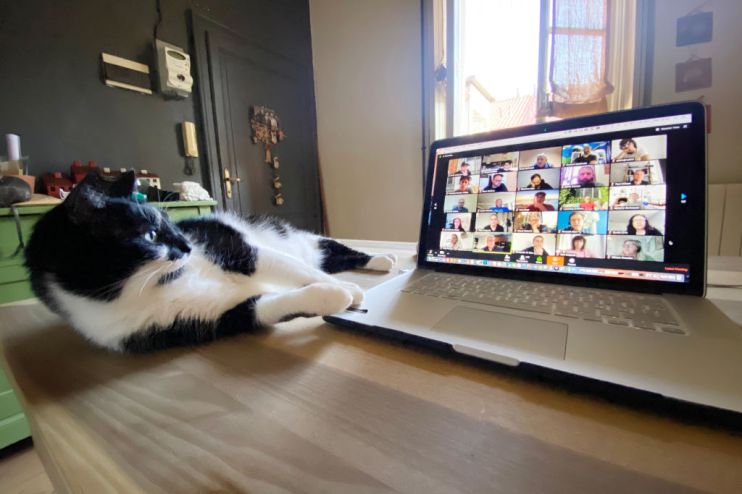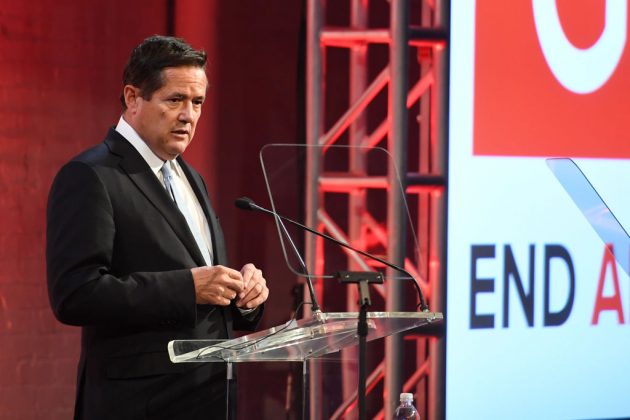Manpower CEO: Remote working isn’t unsustainable but it’s certainly not desirable

Reports on the death of office working have been exaggerated, according to Manpower CEO Jonas Prising.
However, so too has the backlash against remote working exemplified by the bosses of Barclays and Goldman Sachs (who labelled the work-from-home era an abheration).
So, one year on from the Prime Minister’s orders to “work from home if you can” and with more employees vaccinated each day, is the working-from-home revolution destined to go the same way as lockdown trends like making sourdough?
Will the desire for normality swallow up the era of Zoom calls, sleep-ins and no commuting?
Prising takes the easy way out.
The boss of staff recruiter Manpower expects the companies and employees in London and elsewhere will likely combine how we used to collaborate in offices with the flexibility of remote working.
The home working revolution will not be formalised
“We hear a lot about a hybrid model now,” Prising says.
Manpower, as the third-largest staffing and recruitment company in the world, is well-placed to measure the appetite for a large-scale return to the office for white collar roles now used to a year of home working.
“It’s clear from our surveys of employers that they want workers to return to the office., Companies want the collaboration, the culture and the exchange of ideas which is much easier to do in person. But [after Covid-19] you will also have to offer greater flexibility to keep empolyees happy and give them the tools to improve work-life balance”
Prising says those tools could be companies adopting certain days of the week when collaborating teams must be present, but allowing home-working on other days, or embracing flexible start and finish times to avoid the worst of the dreaded commute.
The chief executive says it’s harder for companies to argue against these flexible policies given success most white-collar companies had when making this year-long switch to the virtual office.
The reluctance to embrace working from home permanently, or even for more than is necessary is evident also in the latest KPMG CEO survey which found top executives remain apprehensive about a fully remote workforce, as only a fifth of businesses are looking to hire primarily remote workers – a considerable slide from 73 per cent that backed it mid-pandemic.
Xynteo boss Osvald Bjelland says some changes will stick: “The past year has certainly demonstrated the ‘proof of concept’ for remote working. For it to stick, and deliver benefits to employers and workers, we need to keep a close eye on productivity, culture and employee well-being.”
Remote working is not a panacea
Manpower, which has a market capitalisation of $5.3bn and is third behind Adecco and Randstad as the world’s largest staffing firms, employs around 30,000 globally and Prising says around 80 per cent are remote working currently.

He’s far more pragmatic than banking bosses Jes Staley and David Solomon about how to get staff back to common workspaces. Manpower is already investigating which flexible options can be built in as default in job roles.
It’s further evidence of an old-school company adopting the hybrid model.
Permanent home working is simply not an option though.
“I certainly don’t think long-term remote working is desirable…I don’t think I would say it’s unsustainable, as I would have said 13 months ago… but it’s certainly undesirable.
“Remote working is not a panacea for everything. Yes, it has benefits, but you have also added lots of pressures to employees…with a disproportionate burden on women and minortities.
He then rattles off a list of annoyances and realities of home working (child care, home-schooling, lack of space…) that many of his staff and clients would be happy to leave behind.
“A wholesale switch to 100 per cent remote working? No, they will be few and far between. The vast majority of firms will want people to come back to the office. But that is not to say they will come back to the office as it was pre-pandemic.
As a staffing recruitment and temp worker provider he also hints at reasons why perhaps managers at Manpower’s client firms bosses want staff back under their watch away from Zoom, Slack and MS Teams.
“From a manager perspective…in a remote working environment it’s harder to manage, you have to give them outcome-based assessment”.

Luring them back
The Swedish executive doesn’t expect the UK to adopt a major “Let’s get back to the office” campaign run by business lobbies or the government in the coming months, instead predicting a more organic return to London’s concrete and glass centre.
“Frankly, I think most of the population is dying for a degree of normalcy to return, when people are confident that it is safe and healthy to, people will be delighted to. They might ask for more flexibility and different ways of working based on the lessons we’ve learned, but that’s all it takes”.
Manpower’s employer surveys, Prising says, clearly indicate employers will have no issue with beginning the call to commute in again.
But for those employees who feel right at home when remote working , Prising has some good news:
If Covid-19 lockdowns were a sink-or-swim employer experiment with technologies, abilities and worker desire for more autonomy and flexibility, most firms passed. And the results will stick in some form
“Most organisations are hard at work about how to make remote working work…it cannot be a per-employee basis. It will be policies on split weeks, segmenting workforce, finding out who it is that has to be in th eoffice at the same time and seeing what flexibility can we institutionalise”
“Office life for some will be on certain days, with certain people, in ways that work for you – rather than what works for the company”.

Who’s the most flexible?
“We think companies can compete on this flexbility to attract talent. They willl attract more, and retain more of their workforce.
The Manpower boss is already seeing companies respond to demand for future flexibility in the job ads they post, actively promoting it. And, in the case of the tech and creative companies “stating explicitly that they don’t care where you work”.
Can those of us late to join the work-from-beach brigade still do so? Prising thinks you’ll need to be wiley or have a very understanding manager.
“Is this the time to be talking about the global workforce untethered from the geographic dimension? I don’t think so. There might be some movement, but it’s not a pendulum that will swing drastically where geppraphy doesn’t matter when matching people with jobs”.